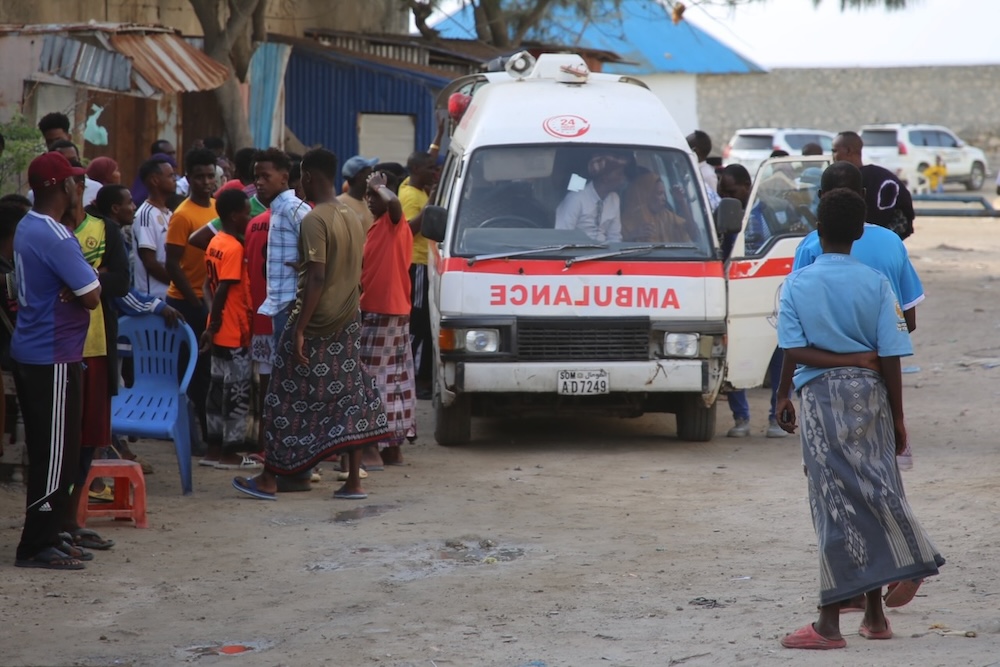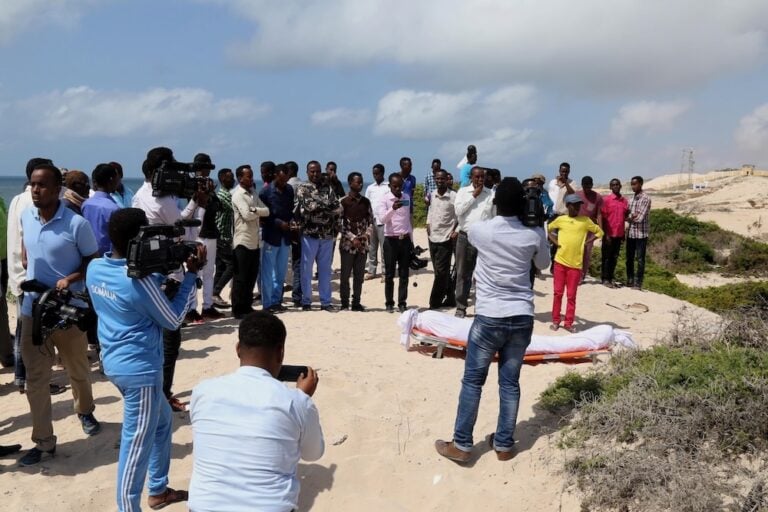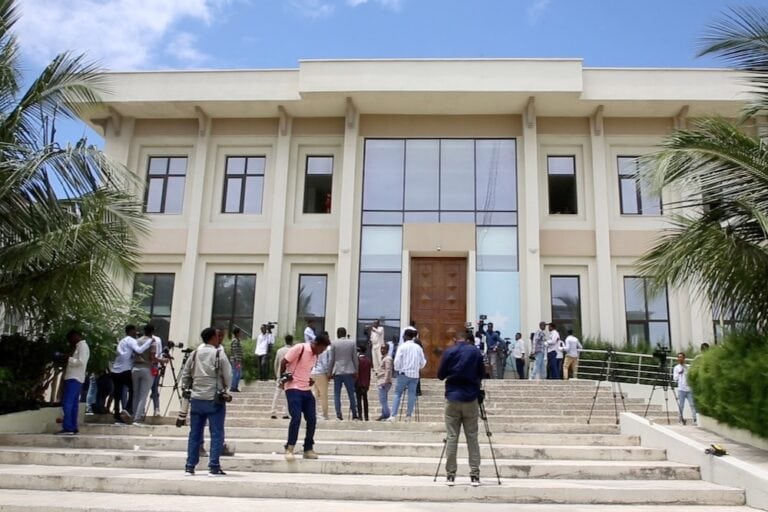The International Press Institute is calling for justice amidst the rise in threats against media freedom in Somalia.
This statement was originally published on ipi.media on 8 November 2024.
The IPI global network strongly condemns the killing of award-winning Somali-Swedish journalist Amun Abdullahi Mohamed, who was murdered on October 18 by two gunmen with reported ties to the insurgent group Al-Shabab. This is the second journalist to be killed in Somalia this year, including Somali National Television journalist Abdikarin Ahmed Bulhan, killed on March 13 by a security guard. We urge the authorities to conduct a thorough investigation into her killing and to hold all perpetrators accountable for this heinous crime.
Reports indicate that there is no known motive for the shooting. However, the area where she was killed has a history of attacks by Al-Shabab. According to reports, Somali authorities have initiated an investigation into her murder. However, at the time of this publication, police have not made any arrests or provided updates on the investigation’s status.
Mohamed was a prominent journalist known for exposing extremism and the activities of Al-Shabab through her investigative reporting. After seeking asylum in Sweden in 1992, Mohamed worked for Radio Sweden’s Somali language department, where she reported on Al-Shabab’s recruitment efforts and highlighted extremist activities in the suburbs of Stockholm. Later, she resettled in Abdula Biroole, a small village in the Afgoye district, located 40 km southwest of the capital of Mogadishu.
“We are deeply saddened by the killing of journalist Amun Abdullahi Mohamed and demand a thorough and independent investigation and also the prosecution of the perpetrators,” Nompilo Simanje, IPI Advocacy and Partnership Lead, said. “Failure to finalize the investigation and prosecute the perpetrators creates a dangerous environment for media freedom in the country and a culture of impunity.”
Before returning to Somalia, Mohamed’s 2009 investigation revealed Al-Shabab’s recruitment of young people from Stockholm. Her independent journalism drew national attention, along with threats and hostility from her community. Nevertheless, her fearless commitment to truth and her exposés of extremism earned her public recognition, including the Publicist Club’s Freedom of Speech Award and a nomination for Sweden’s prestigious Guldspaden journalism award in 2010.
Concerns over press freedom remain high, as impunity for crimes against journalists grows. Numerous journalists have been killed in Somalia due to their work, and many others face threats, physical assaults, and illegal arrests as a result of their independent journalism and criticism of authorities.
According to the local press defense group, the Somali Journalists Syndicate (SJS), between 2009 and 2024, at least five journalists have been killed in the Lower Shabelle region, considered to be the most affected region by the Al-Shabab group, including the case of Mohamed, with little progress e to bring those accountable to justice.
Recently, IPI reiterated its call for authorities to put an end to the harassment, threats, and violence faced by journalists from both the Somali government and Al-Shabab, amid various other threats to press freedom.



